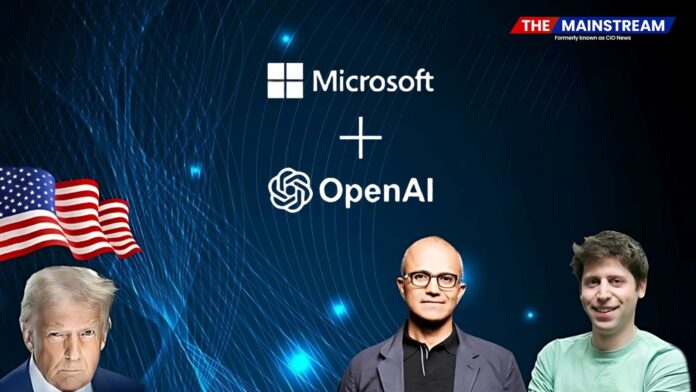On Tuesday, President Donald Trump revealed a significant new initiative, the Stargate Project, a collaborative effort involving OpenAI, Oracle, and SoftBank. Trump called it “the largest AI infrastructure project in history,” highlighting its transformative potential for the future of technology.
Project Overview and Investment Plans
The Stargate Project will initially receive a $100 billion investment, with plans to increase the funding to $500 billion within the next four years. SoftBank, the Japanese multinational, will handle the financial aspects of the project, while OpenAI, the company behind the widely used AI system ChatGPT, will oversee the operational management. According to John Higgins, Chief Economist at Capital Economics, this initiative is a significant endorsement for artificial intelligence under President Trump’s second term.
The project is expected to create over 100,000 jobs in the United States, with positions available in areas such as construction, operations, and AI development. OpenAI further stated that the project could lead to the creation of hundreds of thousands of American jobs in the coming years.
Data Centers to Support AI Development
One of the main goals of the Stargate Project is to establish a network of data centers across the U.S. These centers will provide the necessary infrastructure for AI development and will support a variety of industries, including healthcare, defence, and finance.
The first data center is currently under construction in Abilene, Texas, with plans to expand to 10 additional centers in the near future. The project aims to build up to 20 data centers, each covering around half a million square feet. Additional sites for these centers are being considered across the nation. Larry Ellison, Chairman of Oracle, emphasized the importance of AI in revolutionizing healthcare, including efforts to develop cancer vaccines. Using AI technology, the Stargate Project could enable early cancer detection and the creation of personalized mRNA vaccines in as little as 48 hours.
Job Creation
The Stargate Project is poised to have a substantial impact on the U.S. economy. In addition to creating tens of thousands of jobs, the project will boost the nation’s technological infrastructure and enhance its competitive edge in AI. As AI continues to evolve and shape various industries, the U.S. is looking to maintain its leadership in this critical field.
The initiative’s focus on data center construction and AI development offers an opportunity to revitalize local economies, particularly in areas where the data centers are located. New hires will be needed for construction, operations, and support, contributing to the long-term economic growth of these regions.
Foreign Investment and SoftBank’s Role
SoftBank’s involvement in the Stargate Project has raised questions about foreign investment in U.S. technology. While some critics are concerned about the influence of a foreign company, experts view SoftBank’s participation as a sign of global collaboration. SoftBank has a long history of investing in groundbreaking technology ventures, and its financial support is considered crucial for the success of the Stargate Project.
President Trump’s decision to include foreign companies in the project highlights a shift in approach compared to previous administrations. While some feared that foreign firms could be excluded from U.S. AI initiatives, the involvement of SoftBank suggests that the Trump administration is open to partnerships with allied nations in the pursuit of AI dominance.
The Impact on AI Policy
The Stargate Project comes as President Trump signals a departure from former President Biden’s approach to AI regulation. Upon returning to the White House, Trump repealed Biden’s policies aimed at placing safeguards on AI development. Analysts suggest that Trump’s stance on AI will encourage further investment and innovation, with the Stargate Project acting as a key part of this vision.
However, the project’s future could be shaped by ongoing discussions surrounding AI regulation. As the technology continues to advance, there are concerns about its potential societal impacts. In this context, the Stargate Project could play a significant role in shaping the direction of AI policy under the new administration.
Scepticism and Challenges
Despite the enthusiasm surrounding the Stargate Project, not everyone is convinced that the project will succeed. Elon Musk, a prominent tech entrepreneur and former co-founder of OpenAI, expressed doubts about the project’s funding. Musk raised concerns on social media, stating that SoftBank had not secured the required financial backing to make the project a reality. He claimed that SoftBank had “well under $10 billion” available for the initiative.
OpenAI CEO Sam Altman responded to Musk’s criticism, stating that the project is fully funded and capable of meeting its financial goals. Musk’s skepticism stems from his ongoing disagreements with OpenAI, which he claims has deviated from its original mission to use AI for the public good. Musk has also criticized OpenAI for prioritizing profits over the broader societal benefits of AI technology.
Environmental Concerns
In addition to the financial uncertainties, there are concerns about the environmental impact of the Stargate Project. The construction of numerous data centers, each requiring significant amounts of energy and water, could lead to sustainability challenges. These concerns are expected to be addressed as the project moves forward, though it remains an area of potential risk.
Looking Forward
The Stargate Project represents a bold step in the development of AI infrastructure in the United States. If successful, it could secure the nation’s leadership in AI, driving advancements in healthcare and other sectors. However, the project will face significant challenges, including financial uncertainties, regulatory questions, and environmental concerns.
The next few years will be critical in determining whether the Stargate Project can achieve its ambitious goals and shape the future of AI in the U.S. and globally.






